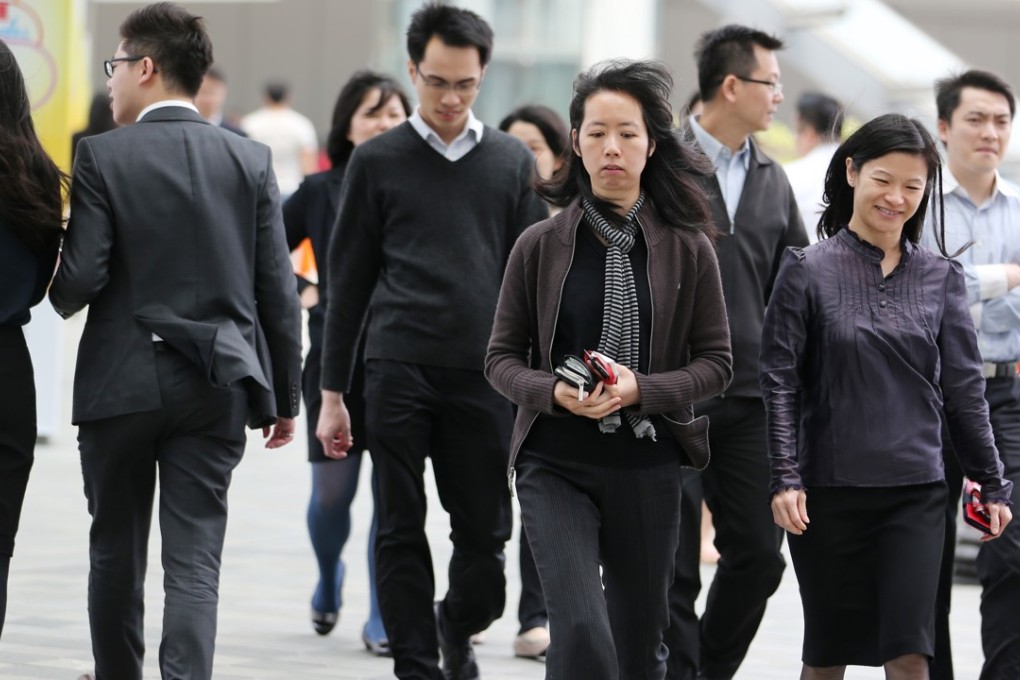The View | Blame 25-44 year olds for slowing of Hong Kong’s GDP since handover
Hong Kong hit with slower economic growth and increased economic inequality since 1997 compared to the previous twenty years

In the twenty years since the establishment of the Special Administrative Region, Hong Kong has experienced slower economic growth and increased economic inequality compared to the previous twenty years. Why is that?
Average annual GDP and GDP per capita increased, respectively, by 6.6 and 4.8 per cent in the period 1977-1997, but 3.2 and 2.6 per cent in 1997-2017.
Among households with heads aged 20-65 years old, the Gini-coefficients on the distribution of household income (before government transfer subsidies) increased from 0.432 in 1976, to 0.477 in 1996 and 0.507 in 2016 – a higher figure means greater inequality.
The changes in growth and inequality are fairly large between the two periods. Why have these figures worsened by so much? And how should we judge this economic performance?
I have come across several popular explanations for our relatively poor economic performance since 1997.
These include the detrimental effects of the Asian Financial Crisis and the Global Financial Tsunami, Hong Kong’s continued adherence to ‘positive non-interventionism’ (although I would argue there is greater intervention now given the hurdles that make it difficult for Uber, Airbnb, medical doctors and all sorts of businesses and skilled workers to operate in Hong Kong), the rapid structural transformation of Hong Kong’s economy from export-oriented manufacturing to more regulated services following China’s opening in 1979, and the ever-present problem of rising rents and property prices.

